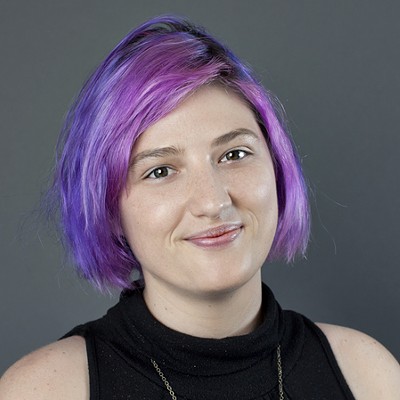Dance music isn't a religion, but taking a look around today's dance floor might lead you to believe it's possible. It's not all sex and hedonism. These beat freaks are having life-changing experiences. They flock from all over the world to pray at the altar of light and bpms.
And who presides over these sermons of peace and love? The mighty DJ is the wordless preacher of our era. And who among them reigns high above the masses? Why, German-born producer Paul van Dyk. He's been in the game for decades and continues to lead quite the Christ-like existence. Don't believe us? Check it out.
He was trained to be a humble carpenter. Paul van Dyk (née Matthias Paul) was born on the wrong side of the Berlin Wall, and we mean Communist East Germany in December 1971. He was raised in a single-parent household. (Not quite a virgin birth, but there was an absent father.) Growing up, he worked as a broadcast technician and began training to become a carpenter, but he always had a deep love of music. And despite laws against Western pop, he discovered bands such as New Order and the Smiths. He and his mother escaped in November 1989, just a week before the Wall officially came down, and from that point, he abandoned carpentry for a different kind of build.
He helped lay the foundation for a movement. This Jesus Christ-like superstar is one of the kings of contemporary trance. He began making waves in the early '90s with his own three-hour radio show in Germany. Next, he produced a miraculous, scene-defining remix of Humate's "Love Stimulation." And then, in 1996, van Dyk's second album, Seven Ways, produced several breakout hits, solidifying his place as a major proponent of trance's popular explosion. His classic '90s sound was characterized by lush soundscapes and shimmery textures, always pushing forward into an ecstatic rush. Still, like a lot of producers, he hated to be labeled and preferred that the music speak for itself.
He was really, really big in his 30s. After helping establish the legitimacy of a new, emerging generation of dance music artists, van Dyk was heralded as one of the most important producers of his era. So when the Grammys finally caved to pressure and introduced the Best Dance/Electronic Album category in 2003, he received a nomination for his full-length album, Reflections. But more telling, for the past decade and a half, he has consistently ranked among the elite of DJ Mag's illustrious Top 100 DJs poll, even becoming a 13-year top-ten finisher before dropping to 11th in 2011 and then settling into the 16th spot last year.
He uses his powers to bring people together. Van Dyk travels the world spreading his love of music to the masses, and he doesn't limit himself to Ibiza, Vegas, and Miami. He has delivered his message of love to Lebanon and much of the Middle East in the hope of giving people a chance to escape their war-torn realities. It's easy to see why this would be important to him, an East Berliner. As he explained in an interview with ibiza-voice.com: "Even with all the fun that electronic music can bring, it also developed into a global youth culture, a very peaceful and huge society. Palestinians are dancing with Israelis. Lebanese people are dancing with Israelis without war, without anything in their minds other than treating each other respectfully. That's why dance music is a political and diplomatic tool that could be used."
He is a peaceful warrior. Understanding the power of music and aiming to use it to the fullest extent, van Dyk supports social programs across the globe. He has also never avoided the political conversation and openly opposed the Iraq War. In fact, he has often articulated his belief that EDM can change the world, even choosing the title The Politics of Dancing for a double-disc compilation meant to raise awareness and spread peaceful, loving vibes. In the booth, he often wears "Make Peace, Not War" shirts to promote healing through peace, love, unity, respect, and understanding.
Now, isn't that the sort of thing Jesus asked of us?











